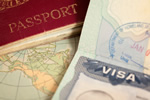Paradise Papers spur EU attack on offshore financial jurisdictions

Paradise Papers spur EU attack on offshore financial jurisdictions
Although EU finance supremo Pierre Moscovici admits tax avoiders who do business with offshore tax havens are not breaking any current laws, he believes tax and banking laws should be changed to disallow the use of loopholes of this type. As a result, the influential eurocrat is compiling a ‘blacklist’ of international tax havens highlighting around 50 countries which allow tax avoidance. In addition, he’s planning to bring in new laws aimed at prohibiting lawyers, tax advisors and banks from setting up schemes which result in tax avoidance, and is also planning to impose compulsory country-for-country reporting by companies in order to make sure they pay local taxes on profits from sales made outside their home countries.
The European Union wants the blacklist to be published by the end of this year, with the new rules to be put in place by the end of 2018. The British government is concerned about the inclusion on the blacklist of several of its overseas territories including Bermuda, the Cayman Islands and the British Virgin Islands, all of which are popular tax havens. Also being investigated are the Channel Islands of Jersey and Guernsey and the Isle of Man, all of which offer convenient services to expat businesses and investors living overseas. Luxembourg and Liechtenstein as well as Malta are expected to also be targeted.
Moscovici is fully aware the tax planning optimization schemes provided by offshore jurisdictions are perfectly legal, as is tax avoidance itself. In addition, a number of offshore jurisdiction provide banking services for UK expats now unable to continue with their UK bank, as well as for long-stay Britons living overseas and making sure HMRC is correct in listing them as non-domiciled and non-resident. It’s not known what effect, if any, would be had on legal bank accounts of this type.
News of the EU’s attempt to clamp down on offshore financial centres came following the leaking of the infamous Paradise Papers listing names of the wealthy and famous who use offshore facilities to ameliorate their tax bills. Supporters of the EU’s move may well concentrate on money-laundering and the proceeds of crime as reason enough to muzzle offshore tax havens, but one thing’s for certain – everyday expats simply needing somewhere to put their capital will suffer more than the fat cats listed in the leaked papers.
Related Stories:
- Is Kuwaitization the unintended result of the oil price crash? - July 20, 2020
- Expats in Malaysia still banned from overseas travel - July 17, 2020
- HSBC Asia to cut back on internal expat relocations - July 16, 2020
- Tips on integrating for newly-arrived expats - July 15, 2020
Latest News:
- Tips on a trouble-free relocation as an expat overseas - July 20, 2020
- Expats find peace in the covid-19 refuge of Dahab town - July 20, 2020
- Is Kuwaitization the unintended result of the oil price crash? - July 20, 2020
- Expats unhappy abut changes to Korean points-based visa system - July 17, 2020
- Chiang Mai and Bangkok no longer bargain locations for expats - July 17, 2020
- Expats in Malaysia still banned from overseas travel - July 17, 2020
- Vietnam welcomes expats to its safe, affordable lifestyle - July 16, 2020
- Asian tiger economies reach out to expats in Hong Kong - July 16, 2020
- HSBC Asia to cut back on internal expat relocations - July 16, 2020
- Tips on integrating for newly-arrived expats - July 15, 2020


